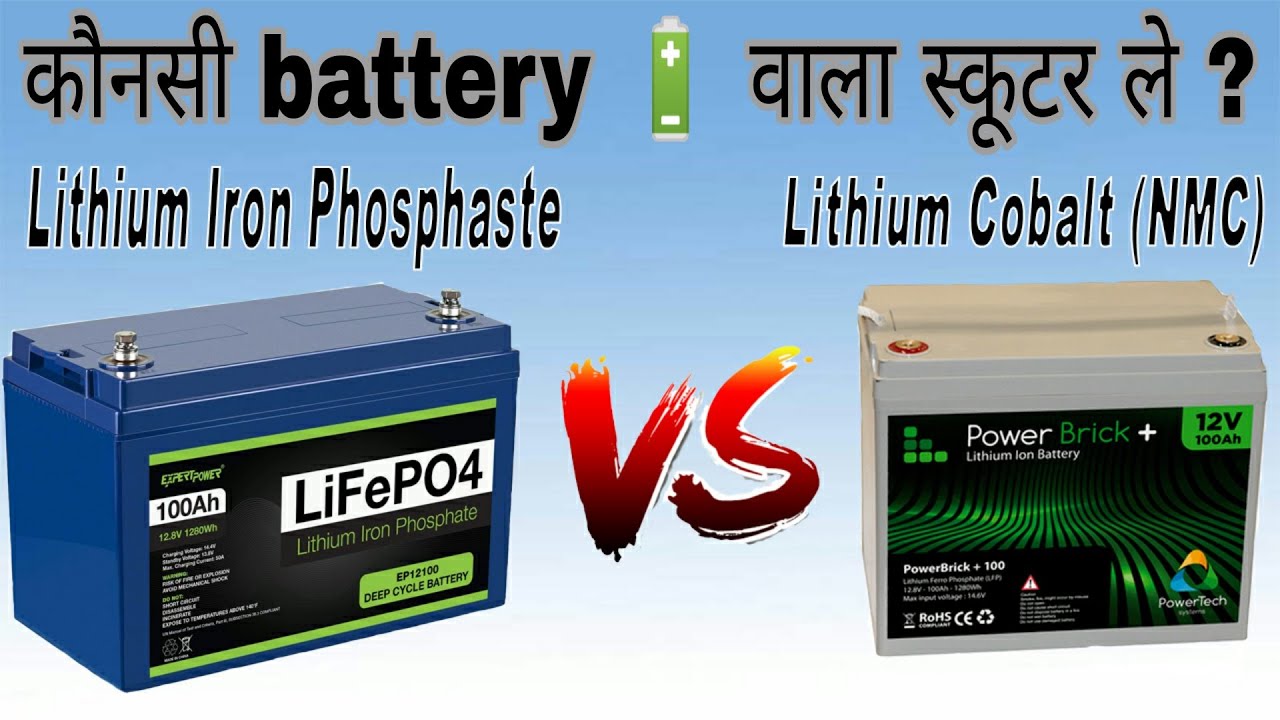Choosing a battery is not an easy task, but it is very important to choose the right one for your device. Lithium-ion batteries have many advantages over their competitors, and they are a great choice for portable electronics. Here’s an overview of the differences between these two types of batteries. This comparison will help you make a wise choice for your battery needs. Also, you can compare the performance of each type in different situations.

Lithium-ion battery
Lithium-ion batteries are more powerful than lifepo4 batteries, but the two types are not the same. The main difference between the two types is chemistry. While they are both based on lithium ions, the LFP is safer and has a higher cycle life. Moreover, they cost less than their NMC counterparts.
The lithium-ion battery has a constant voltage during the discharge process, so you won’t have to worry about it running out of power. Moreover, a lithium-ion battery will deliver a constant current. It’s similar to the way that your flashlight will dim as the battery is dying.
The main difference between the two types is their C rates. A battery that runs at one C-rate gives one amp an hour. The other type is the lithium polymer battery. Its C-rates are about 0.7 and 1.0. Each has its advantages and disadvantages.
LiFeP04 is the safest and most reliable lithium battery. It uses graphite as an anode and a cathode made of iron phosphate. Its size and weight make it popular with manufacturers. It also has an energy density of 90/120 Wh/Kg and a nominal voltage of 3.0 to 3.2 volts.
LiFePO4 is more expensive than lithium-ion, but its life span is higher than that of a lithium-ion battery. It’s easier to manufacture and less rare than its lithium counterpart. Moreover, it’s safer to handle than other lithium batteries.
Lithium-ion batteries are much safer than lithium-iron phosphate, but their lifespan is shorter than that of lithium-iron phosphate batteries. Nevertheless, lithium iron phosphate batteries are more durable and can withstand high temperatures. They are a better choice for small medical equipment and portable instruments.
Another major difference between LiFePO4 and lithium-ion batteries is voltage. Lithium-ion batteries have a narrow Voltage window, and if you go outside of this window, you risk damaging the battery. The voltage of a lithium-ion cell can reach up to 16.8V, and the voltage range of a LiFePO4 cell is between 2.5V and 4.2V per cell.
Lithium iron phosphate battery
Lithium iron phosphate batteries are a type of lithium-ion battery. They use a graphitic carbon electrode and metallic backing to store lithium. The lithium ions are transferred from the cathode to the anode. This process allows for longer battery life.
The key benefits of a lithium iron phosphate battery are its high energy density and high working voltage. Other advantages of this battery include its long cycle life and low self-discharge rate. It also features a low memory effect and is environmentally friendly. Because of these attributes, lithium iron phosphate batteries have good application prospects in large-scale electric energy storage. They are also suitable for UPS power supplies and emergency power systems.
Another advantage of LiFePO4 batteries is their extreme temperature tolerance. LiFePO4 batteries typically operate at full capacity in temperatures ranging from -20degC to 70degC. They are also more durable, requiring no maintenance. And unlike other lithium batteries, they do not suffer from the memory effect that results from incomplete discharges. LiFePO4 batteries are available for a wide range of applications, including commercial and leisure boats.
Lithium iron phosphate batteries are lighter than lithium-ion batteries, with a life span of 1,000-10,000 cycles. They are ideal for use in long-term applications in stationary and high-temperature environments. They are also more stable, which makes them more suitable for higher temperatures.
Lithium-iron phosphate batteries are eco-friendly and do not contain harmful chemicals. They are easily recycled and do not contribute to dumping in landfills. In addition, they last longer than other batteries, reducing waste and reducing overall environmental impact. If you are looking for a battery that is eco-friendly, a lithium-iron-phosphate battery is the best choice.
Lithium iron phosphate batteries are widely used in passenger cars, buses, logistics vehicles, and low-speed electric vehicles. The technology is highly versatile, with its low temperature, large capacity, and safe use all making it a desirable candidate for electric vehicles. Lithium-iron phosphate batteries are also gaining popularity in consumer electronics.
Lithium iron phosphate batteries offer many advantages over lead acid batteries. They have high energy density and are lightweight. They are also durable, reliable, and safe. Lithium-iron phosphate batteries are also known for their cost-effectiveness. Lithium-iron phosphate batteries are also extremely resistant to high temperatures.
Lithium iron phosphate battery packs can be custom-made for specific needs. Nuranu is a leading supplier of customized battery packs. They offer custom lithium battery packs for a variety of industries. Nuranu also offers customized lithium iron phosphate battery assemblies. Nuranu’s lithium battery packs are compatible with a number of other lithium-ion battery chemistries.
If you need a larger capacity or higher voltage, a lithium iron phosphate battery can provide a more powerful energy source. In fact, Lithium iron phosphate batteries can be connected in series or parallel, resulting in more than 1,000 watt-hours of energy per kilogram of material.
One of the most common types of rechargeable batteries, lithium iron phosphate batteries have several benefits over lithium-ion batteries. While they share a chemical composition with lithium-ion batteries, they have a significantly greater power output and lower resistance. Another advantage of LiFePO4 batteries is that they are environmentally friendly.
Another benefit of LiFePO4 batteries is that they have excellent thermal and chemical stability. This means that even if an internal short circuit occurs, the battery will not explode. This is a big advantage because other lithium batteries are more likely to heat up during the charging process and experience thermal runaway, which can lead to an explosion. Additionally, LiFePO4 batteries have a lower capacity loss and longer cycle life.









